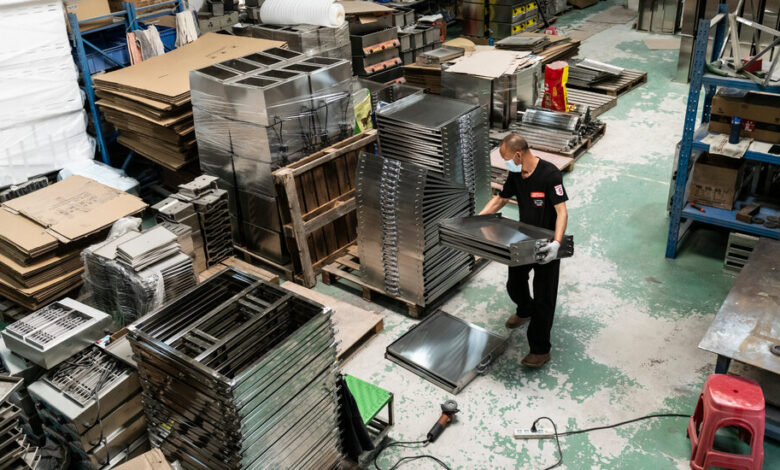Inside Factories in China, a Struggle to Survive Trump’s Tariffs

The recent escalation of tariffs by President Trump on Chinese goods to 125 percent has stirred a range of emotions in the bustling streets and small factories of southeastern China – anger, worry, and determination.
For decades, the thousands of export-oriented small factories in and around Guangzhou have been instrumental in China’s economic growth. These factories, known for their ability to produce a variety of products at low costs, employ millions of migrant workers from across the country.
However, many of these factories are now facing challenging times. Managers of clothing factories are concerned about canceled orders from American customers, machinery manufacturers are uncertain about their future, and workers are anxious about job security.
Some garment factories, particularly those catering to the U.S. market, have already temporarily shut down as owners await clarity on tariffs. Many other factories are now scrambling to find customers in other countries or within China.
Even before the recent tariffs, China was grappling with an oversupply of factory capacity. This surplus has led to intense price competition, especially in the domestic market, where consumers have become more frugal due to economic challenges.
Ling Meilan, co-owner of a shirt factory in Guangzhou, expressed concerns about the impact of the trade war on clothing orders. With uncertainty looming, many factories are facing the risk of reduced business and financial losses.
While some factories are adapting to the changing market dynamics, others that heavily rely on U.S. customers are already feeling the effects. The recent wave of order cancellations has put additional strain on small factories.
Last-minute cancellations by U.S. importers to avoid tariffs have left factories with excess inventory and financial challenges. The current situation has highlighted the vulnerability of small factories in Guangzhou.
Manufacturers of machinery in China may have a competitive edge due to their dominance in certain product categories. Elon Li, a factory owner in Guangzhou, remains optimistic about weathering the tariffs.
Mr. Li emphasizes the cost advantages of manufacturing in China, particularly in the cooking equipment sector. Despite the challenges posed by tariffs, he believes that Chinese manufacturers can maintain their competitive pricing.
The impact of tariffs on retail prices of Chinese goods in the U.S. may be limited, as manufacturing costs form a small portion of the final price. Mr. Li’s perspective sheds light on the complexities of the trade war.
Despite the challenges, factory managers in Guangzhou remain resilient, buoyed by China’s economic progress. The enduring spirit of Chinese manufacturers underscores their confidence in overcoming obstacles.
Li You contributed research.





